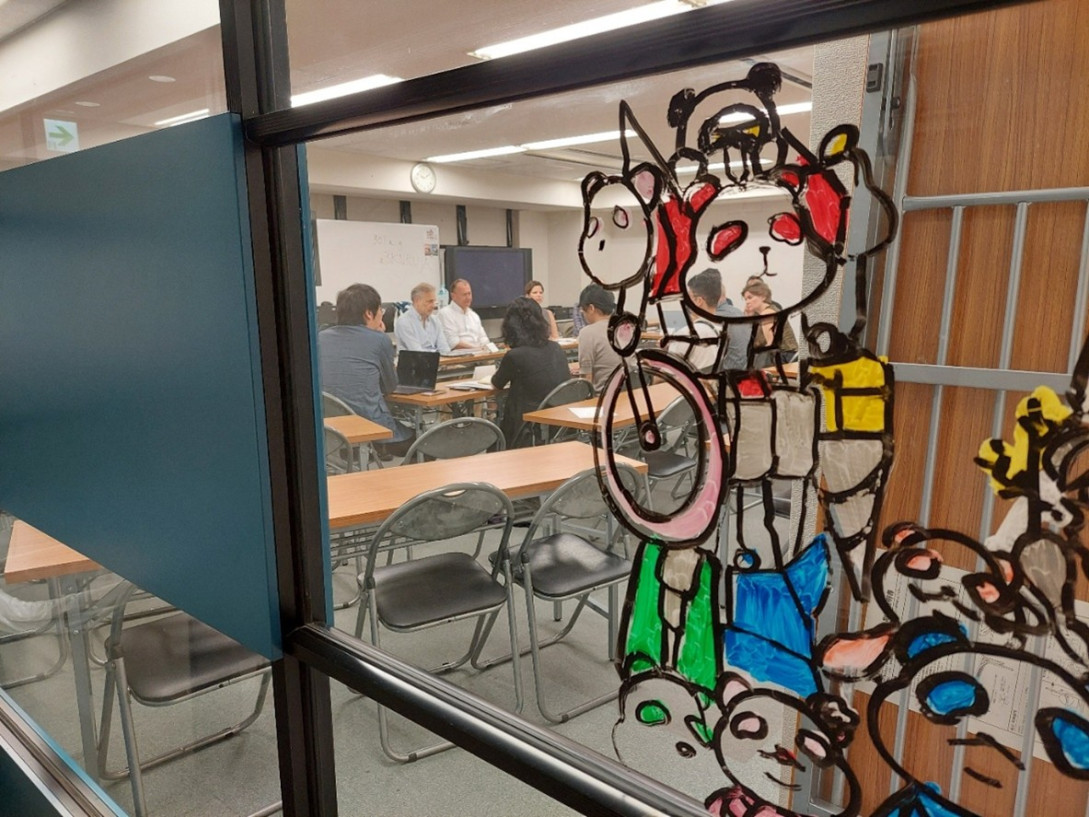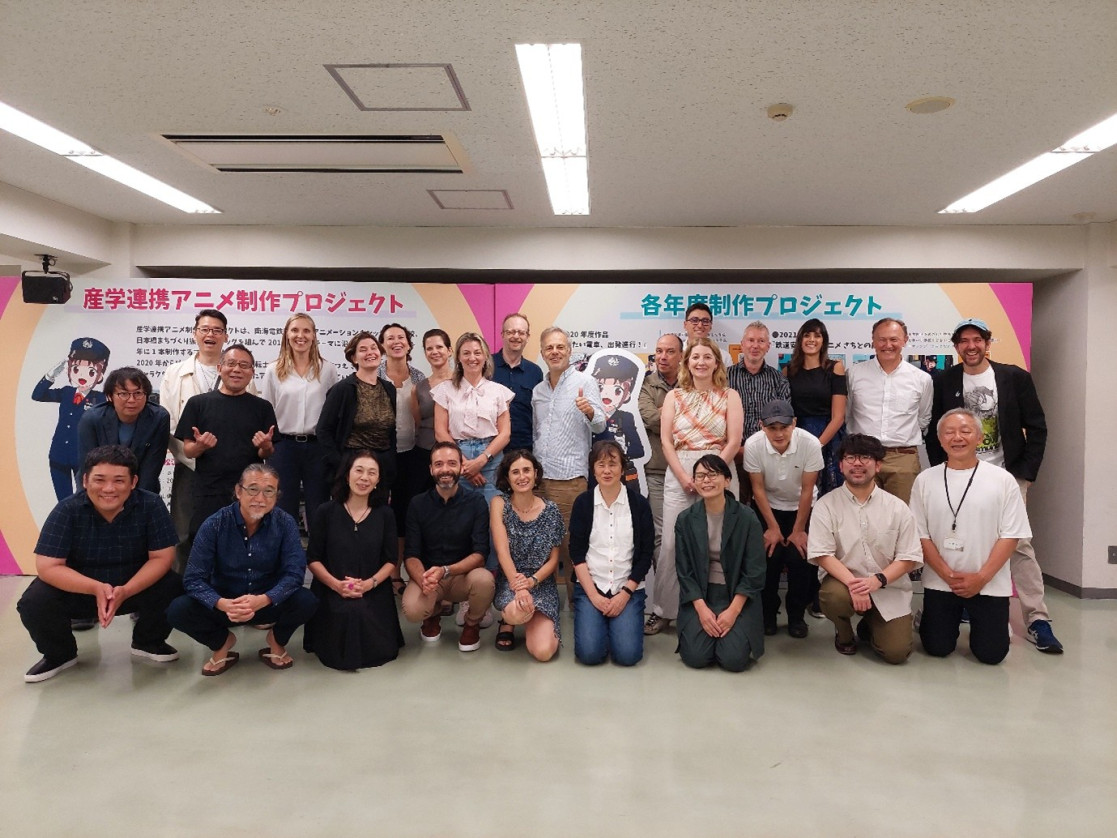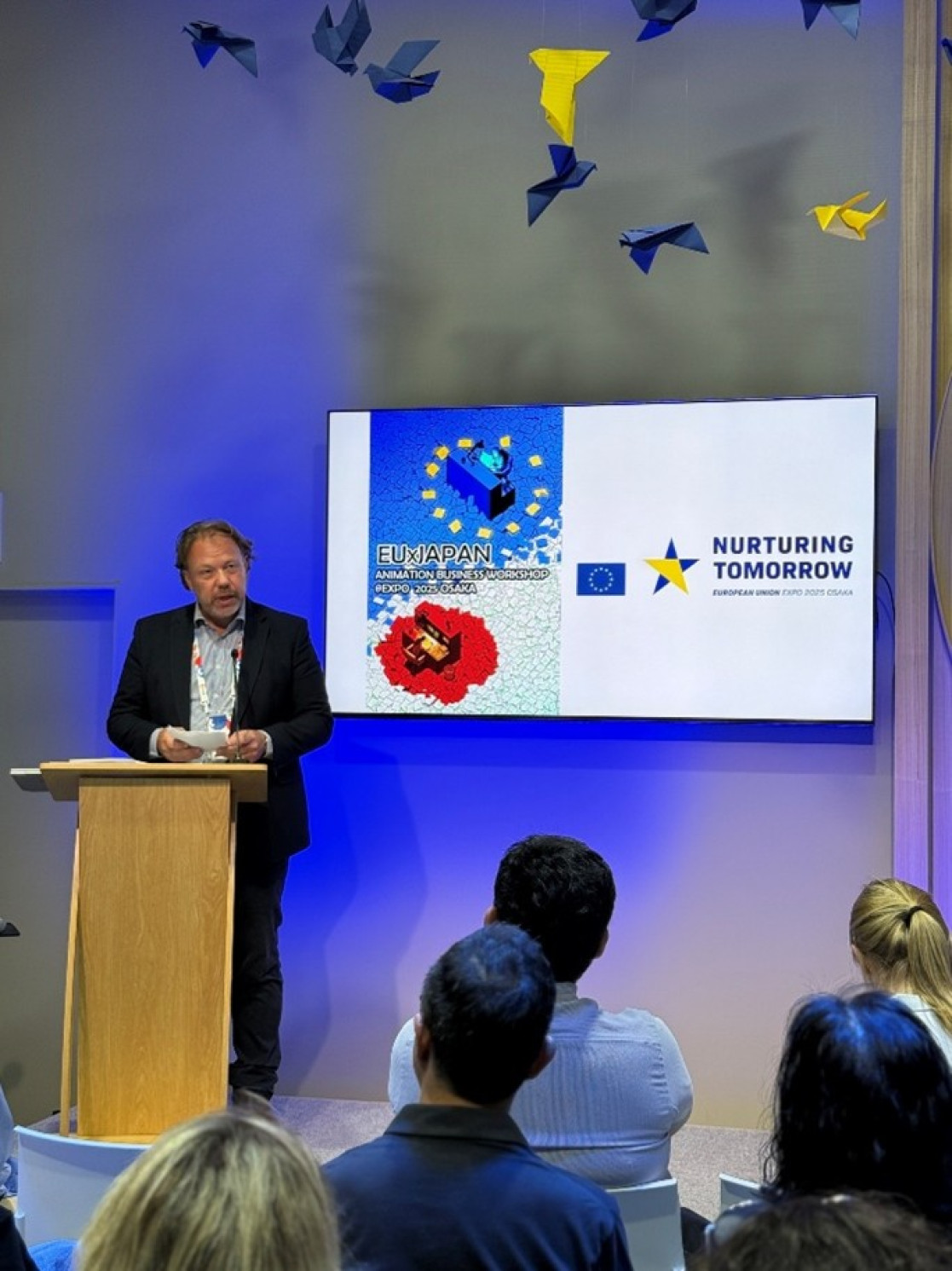Strengthening Industry Ties at the EU-Japan Animation Workshop

The event confirmed a strong interest in cross-regional cooperation in animation, fostering a community of high-profile industry leaders. It also produced a set of shared recommendations, serving as a roadmap for deeper EU–Japan industry collaboration and joint projects.
World-Class Industries
Both the EU and Japan have sophisticated, influential animation ecosystems, with rich artistic traditions and globally renowned studios. They also face similar transitions: the erosion of traditional TV markets, the dominance of global platforms, and the urgency to reconnect with new generations of audiences. However, they operate under different industrial and cultural paradigms.
Despite these differences, both regions see animation as a language of imagination and cultural diplomacy. Through mutual trust, shared frameworks, and artistic collaboration, EU–Japan cooperation can redefine how stories travel and how creativity thrives in the next decade.
EU-Japan Animation Network
From 24-26 September 2025, the European External Action Service (EEAS), in collaboration with the European Commission’s department responsible for the Europe Creative MEDIA programme (DG CNECT), brought together in Osaka 30 leading professionals from Europe and Japan’s animation industries, including producers, distributors, rights managers, and institutional representatives.

European Union
Philippe Alessandri, Producer and Chair of Animation in Europe, noted: "The first aim of the workshop is to understand each other—how Europeans and Japanese make series and films, how they secure funding, and what genres and audiences they target."
The workshop not only fostered collaboration but also laid the foundation for a sustained business community. Professionals discussed global licensing, stop-motion production, and legal/IP frameworks, acknowledging challenges such as Europe’s fragmentation and Japan’s committee-based financing models.
Caterina Gonnelli, CCO of Xilam Animation, highlighted: "For European producers, it’s fascinating to see how the Japanese market is opening to international collaborations. The two systems are different, but we share common goals."
Key proposals include:
- Coproduction agreements to harmonise business models and IP sharing.
- Joint localisation and distribution funds to support dubbing, subtitling, and marketing.
- EU–Japan animation distribution platforms linking art cinemas, festivals, and streamers.
- Talent exchange programmes, including internships and university-industry collaborations.
- Co-branded IP incubators, combining Japan’s market-driven financing with Europe’s public funding.
A Shared Vision

European Union
By merging Europe’s diverse storytelling and financing models with Japan’s global branding and fan culture, the two regions can co-create world-class animation projects.
Shuzo John Shiota, President/CEO of Polygon Pictures Inc., remarked: "That’s a wonderful foundation. More conversations like this are needed to find concrete solutions."
The Osaka workshop marks a milestone in EU cultural diplomacy, positioning animation as both a creative industry strategy and a transnational bridge for innovation and growth.
- For more details, follow the link to download the EU-JP Business Animation Workshop 2025 Final Report





